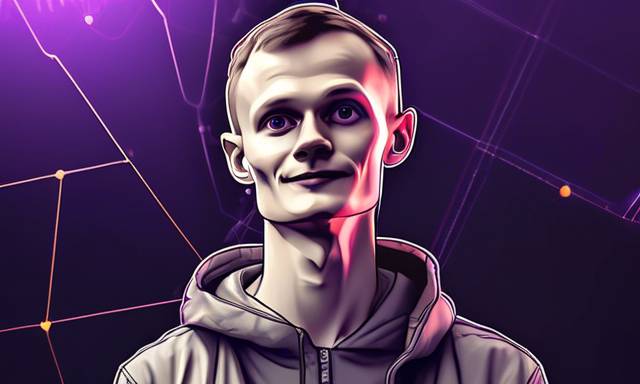Understanding the Importance of Personal Staking in Ethereum
This year, during the Ethereum Singapore conference held on September 16, 2024, Vitalik Buterin, co-founder of Ethereum, highlighted a significant focus for the network: the value of personal staking. His insights into this topic are pivotal for understanding the future of Ethereum and its ongoing commitment to security and decentralization.
What is Staking in Ethereum? The Significance According to Vitalik Buterin
Staking serves a fundamental purpose in the operation of Ethereum’s Ethereum 2.0 version, which utilizes a consensus method known as Proof of Stake (PoS). Simply put, those who wish to validate transactions and contribute to blockchain security can do so by staking a specific amount of Ethereum (ETH) in a smart contract.
For participation in Ethereum staking, one must own at least 32 ETH. This requirement often forces users to depend on centralized staking services or pools managed by third parties. However, Buterin expresses concern over this centralization, stressing the necessity for a decentralized and individual approach to staking.
The Essential Role of Individual Stakers
At the Singapore event, Vitalik Buterin articulated why personal staking is critical for preserving Ethereum’s security and decentralization over the long term. He emphasized several key points:
- Increased Resistance to Centralization: Many users, especially those unable to meet the 32 ETH requirement, turn to centralized staking services or third-party-managed pools. While these options may provide convenience, they lead to a concentration of power among a few large entities. In the face of potential issues or attacks on these entities, the Ethereum network’s integrity could be jeopardized. Individual staking decentralizes validation across a larger group, thereby minimizing vulnerability to these threats.
- Enhanced Security: Independent stakers contribute directly to network security. Each validator helps reduce power concentration, making it harder for attackers to launch coordinated strikes against the network. With a diverse array of validators, Ethereum is more robust against malicious manipulation and extensive attacks.
- True Decentralization: Decentralization is a core principle for Ethereum and cryptocurrencies. Buterin highlighted that encouraging user participation through personal staking is one of the most effective ways to uphold this ideal. A higher level of individual involvement reduces the concentration of power, fostering a fairer and more transparent governance system.
- Economic Benefits for Independent Stakers: While personal staking necessitates a significant economic commitment, Buterin indicated that solo stakers can earn higher rewards compared to those using third-party services, which typically take a cut of the rewards generated.
Promoting Individual Staking
One of the hurdles to participating in individual staking is the 32 ETH threshold, which is not easily accessible to all users. To encourage more independent participation, Vitalik Buterin proposed several solutions, including:
- Lowering the Minimum Staking Requirement: Reducing the ETH needed for validator participation could invite more small investors and retail users to take part.
- Improving Technical Accessibility: Currently, operating a staking node requires a degree of technical skill. By simplifying the tools and interfaces available for managing validation nodes, individual staking could become more user-friendly.
- Additional Economic Incentives: The Ethereum network might introduce targeted incentives for individual stakers, such as bonuses or higher rewards for those who participate independently.
The Future Landscape of Ethereum Staking
Vitalik Buterin’s remarks at the Singapore conference underscore the critical balance between security and decentralization that Ethereum must maintain. Personal staking stands out as a necessary component in achieving this equilibrium. As Ethereum evolves with future enhancements, such as the Shard Chain and improvements to its infrastructure, understanding the merits of individual staking will become increasingly vital.
The key takeaway from Buterin is unmistakable: the essence of Ethereum lies in its decentralization and user participation. By embracing personal staking, the network can ensure it remains robust, secure, and aligned with the principles of transparency and openness that have made it a leading blockchain globally.





 By
By
 By
By
 By
By

 By
By
 By
By